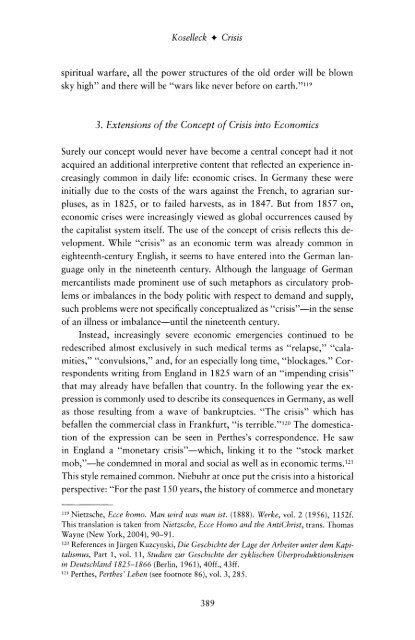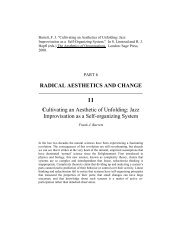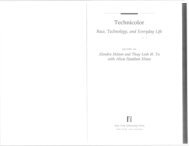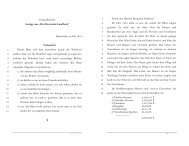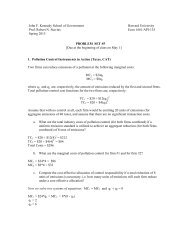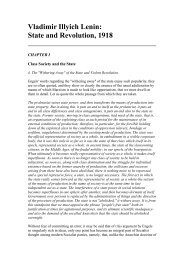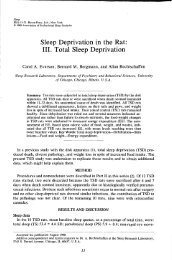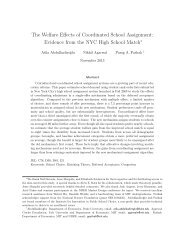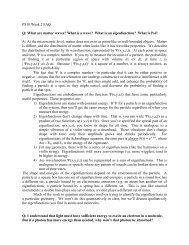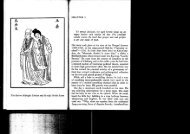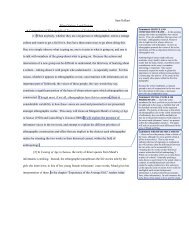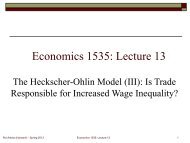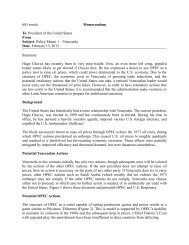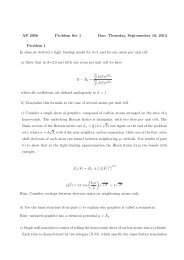CUisis AuthoU(s): ReinhaUt Koselleck and Michaela W ... - iSites
CUisis AuthoU(s): ReinhaUt Koselleck and Michaela W ... - iSites
CUisis AuthoU(s): ReinhaUt Koselleck and Michaela W ... - iSites
You also want an ePaper? Increase the reach of your titles
YUMPU automatically turns print PDFs into web optimized ePapers that Google loves.
<strong>Koselleck</strong> + Crisis<br />
spiritual warfare, all the power structures of the old order will be blown<br />
sky high" <strong>and</strong> there will be "wars like never before on earth.""'19<br />
3. Extensions of the Concept of Crisis into Economics<br />
Surely our concept would never have become a central concept had it not<br />
acquired an additional interpretive content that reflected an experience increasingly<br />
common in daily life: economic crises. In Germany these were<br />
initially due to the costs of the wars against the French, to agrarian surpluses,<br />
as in 1825, or to failed harvests, as in 1847. But from 1857 on,<br />
economic crises were increasingly viewed as global occurrences caused by<br />
the capitalist system itself. The use of the concept of crisis reflects this development.<br />
While "crisis" as an economic term was already common in<br />
eighteenth-century English, it seems to have entered into the German language<br />
only in the nineteenth century. Although the language of German<br />
mercantilists made prominent use of such metaphors as circulatory problems<br />
or imbalances in the body politic with respect to dem<strong>and</strong> <strong>and</strong> supply,<br />
such problems were not specifically conceptualized as "crisis"-in the sense<br />
of an illness or imbalance-until the nineteenth century.<br />
Instead, increasingly severe economic emergencies continued to be<br />
redescribed almost exclusively in such medical terms as "relapse," "calamities,"<br />
"convulsions," <strong>and</strong>, for an especially long time, "blockages." Correspondents<br />
writing from Engl<strong>and</strong> in 1825 warn of an "impending crisis"<br />
that may already have befallen that country. In the following year the expression<br />
is commonly used to describe its consequences in Germany, as well<br />
as those resulting from a wave of bankruptcies. "The crisis" which has<br />
befallen the commercial class in Frankfurt, "is terrible."'20 The domestication<br />
of the expression can be seen in Perthes's correspondence. He saw<br />
in Engl<strong>and</strong> a "monetary crisis"-which, linking it to the "stock market<br />
mob,"--he condemned in moral <strong>and</strong> social as well as in economic terms.121<br />
This style remained common. Niebuhr at once put the crisis into a historical<br />
perspective: "For the past 150 years, the history of commerce <strong>and</strong> monetary<br />
119 Nietzsche, Ecce homo. Man wird was man ist. (1888). Werke, vol. 2 (1956), 1152f.<br />
This translation is taken from Nietzsche, Ecce Homo <strong>and</strong> the AntiChrist, trans. Thomas<br />
Wayne (New York, 2004), 90-91.<br />
120 References in Jurgen Kuzcynski, Die Geschichte der Lage der Arbeiter unter dem Kapi-<br />
talismus, Part 1, vol. 11, Studien zur Geschichte der zyklischen Uberproduktionskrisen<br />
in Deutschl<strong>and</strong> 1825-1866 (Berlin, 1961), 40ff., 43ff.<br />
121 Perthes, Perthes' Leben (see footnote 86), vol. 3, 285.<br />
389


